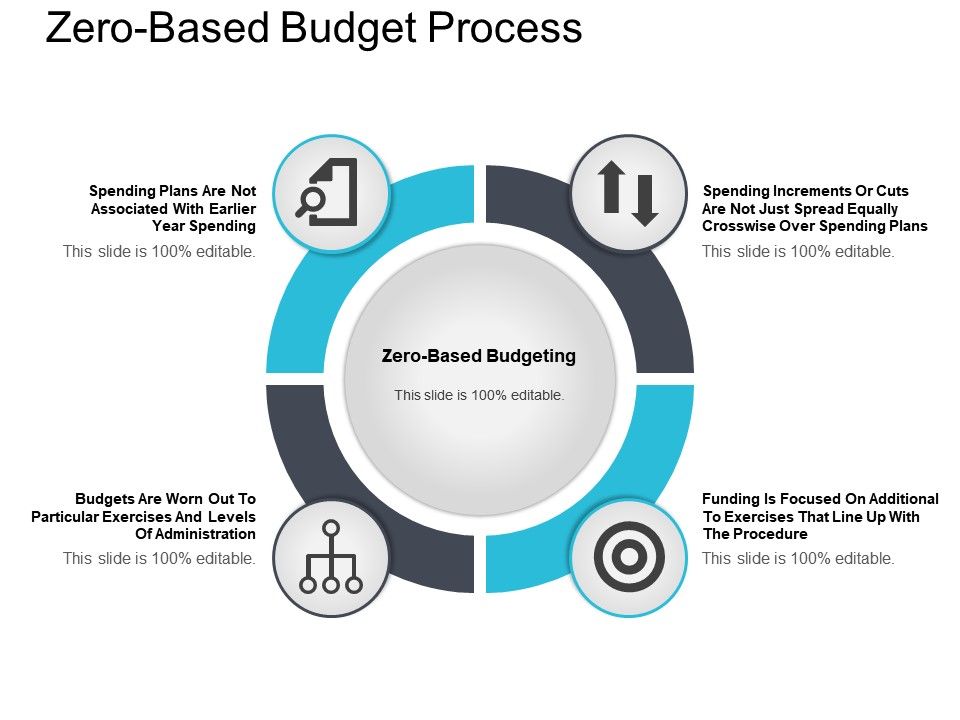For many of us who actually work off a budget, be if for profit, for not-for-profit or personal we just roll over one year’s budget from the last. Developed by Peter Pyhrr in the 1970s, Zero-based budgeting (ZBB) is a method of budgeting in which all expenses must be justified and approved for each new period. ZBB starts from a “zero base” at the beginning of every budget period, analyzing needs and costs of every function within an organization and allocating funds accordingly, regardless of how much money has previously been budgeted to any given line item.

There are positives to ZBB:
- Accuracy: This type of budgeting helps companies to evaluate every department to ensure they are appropriately funded.
- Efficiency: It helps judge the actual needs by focusing on current numbers rather than the momentum of previous budgets.
- Reduced waste: It can remove redundant spending by re-examining potentially unnecessary expenditures.
- Coordination and Communication: It allows for better communication within departments by involving employees in decision-making and budget prioritization.
There are also drawbacks of ZBB:
- Bureaucracy: Creating ZBB within a company can take enormous amounts of time, effort, and analysis that would require extra staff. This could cause the process to be counterproductive in cutting costs.
- Bloat: In using ZBB, managers can skew proposed budgets to characterize expenditures on pet projects as vital activities, inventing a “necessity” for them.
- Intangible Justifications: This type of budgeting requires departments to justify their budget, which can be difficult on many levels. Departments such as advertising and marketing have to justify expenses they may or may not use in the next year due to the fluctuation of the market. This could cost them profits in the future due to not being able to justify a certain amount.
- Managerial Time: ZBB comes at the cost of time and training for managers. This means spending significantly more time every period on the budget.
- Slower Response Time: Due to the amount of time and training is required to do ZBB, managerial staff could be less likely to revise the budget in response to a changing market. This means that it will take longer for a company to move money into departments that need it the most at the time. ZBB could potentially leave gaps in a company because the budget might not react to departments’ sudden needs
Performance measures are a key component of the ZBB process. At the core, ZBB requires quality measures that can be used to analyze the impact of alternative funding scenarios on program operations and outcomes. Without quality measures ZBB simply will not work because decisions cannot be ranked or evaluated. Traditionally, a ZBB analysis focused on three types of measures:
- effectiveness,
- efficiency, and
- workload for each decision unit.
I was thinking about this yesterday near the end of Yom Kippur when singing the end of Avinu Malkeynu. There we say:
ah-vee-noo mahl-kay-noo chah-nay-noo vah-ahh-nay-noo kee ayn bah-noo mah-ahh-seem ahh-say eeh-mah-noo tzih-dah-kah vah-cheh-sed vih-hoe-shee-ay-noo- Our Father, Our King! favor us and answer us for we have no good deeds; deal with us charitably and kindly with us
Every other time I said this it came off as a child pleading to their Father to save them. Yes we know we are crap and have done nothing good, but since you love us as a parent loves a child you will save us. But here during Neilah at the end of Yom Kippur after a day in which we have already repented and we have done teshuva I got to thinking about what this means. Maybe after the slate has been cleaned from year of sin, it has also been cleared from any good we have done. We too have to go through a ZBB for our lives. For better and for worse nothing will roll over from last year.
So let’s get to work and make 5782 everything we want it to be. Here is to a year filled with health, happiness, effectiveness, efficiency, and good decisions.
Leave a comment